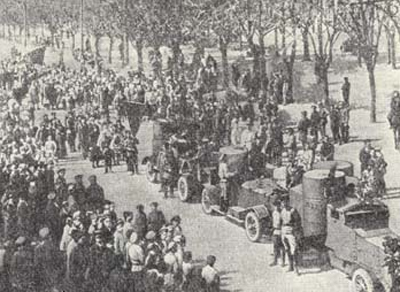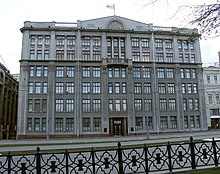@Deus Eversor
It didn't imply 1832 was a failure, it was about the failed 1832 uprising against the July monarchy that preceded the 1848 revolution. And as far as France is concerned, I'll use the event cheats to boost their IC and manpower to give them a chance against Germany
Also expect a three-way WWII between the Entente vs International vs MittleEuropa if tensions run high enough. That or France loses, and the rest of the world rallies against the remaining Socialist nations and Soviet Russia's "bloc" followed by a Entente vs Mittleuropa Cold War and Syndicalism still existing in Latin America and South America. If I do a epilogue, I'm thinking of gesturing towards a different future for the New Left movements of the 1960s that had OTL collapsed under the weight of neoliberalism, backlash, as well as their own contradictions if they ever appear(probably driven by the legacy of Syndicalism?).
@Gukpa
Yes, Russia either becomes an Absolute Monarchy or the USSR through civil war I'm thinking. And when the second civil war starts, expect Russia to descend into Somalia-style chaos as everyone grabs a piece of it. Think of a "Russian World War" To the victor goes the spoils!
Act 1: The Crisis in Russia
Russia, January 2nd, 1936
It was a cold winter morning in the nation of Russia in the start of the year of 1936. The years before were harsh to Russia. The government barely controls the streets of Moscow and St. Petersburg, let alone much of the rest of the country. It will be some time before even a proactive regime can realistically claim the lands of old Tsarist Empire. And the military, inefficient, demoralised, and top-heavy with officers, needs radical reform if it is to be a credible fighting force. Things look bad. However, unseen forces are waiting in the wings, ready to make their move.
On that day President Alexander Kerensky was in St. Petersburg to deliver a speech concerning the future of Russia. While traveling from Moscow to St. Petersburg by train he wondered, in many ways about the fate of his nation, and what he will deliver in his speech. He wondered, could he have avoided all this? Was the collapse of Russia necessary? Could something have been done to restore Russian pride and stability, while maintaining a "democracy"? Could Kolchak's coup and the infighting of the white generals be averted and Russia unified?
Either way that was an answer he will never know. On the day of the speech, as he walked up to the podium, a lone sniper waited in the shadows for his kill...............no one knows who sent him or why, but the goal was clear:
Kerensky must die.
(BANG!)
On the moment that Kerensky went up to deliver his speech, the sound of gunfire erupted, causing disorder among the crowd and forcing them to disperse. When it was all over, Kerensky was lying on the podium, dead, a pool of blood on the floor.
The assassination of Kerensky caused the SR and Kadet coalition to collapse. And at that moment,with the President gone, unseen forces look ready to seize control of the broken nation.................
-------------------------------------------
Moscow, Jan 3, 1936
An old general of much prestige was working at his desk in the military base at Moscow, when he just recived an urgent call from a soldier stationed in St. Petersburg.
Soldier: Commander Denikin, we have a problem
Denikin: What?
Soldier: It's Kerensky
Denikin: Yes, I know, Kerensky. He has been ruling the country with too light a hand, not asserting his power over the breakaways.
Soldier: Uh...Hes dead.
Denikin: What?
Soldier: He was assassinated, a lone anarchist gunman did it. Without him, the ruling SR-Liberal coalition has collapsed. The Mensheviks are moving to secure the coalition's seats in the Duma, and word is that Baron Wrangel is mobilizing his ultranationalist coalition against whomever the new government is. Across the east it seems that both Sternburg and Kolchak are mobilizing their forces to the Mongolian and Far East borders take advantage of the chaos and to strike
Denikin: The Mensheviks will resurrect the Bolshevik ideal and my rival Wrangel and his hardliners will not make a suitable leader of the motherland. I have the support of the army and the Orthodox Church. Time I put that support to good use. I must mobilize my forces and save Russia.
Soldier: May God and the true faith be with you, commander.
-------------------------------------------
St. Petersburg, Jan 3 1936
(At Baron Wrangel's Palace, an ultranationalist officer, Andrei Vlasov, Baron Wrangel's second in command was approaching Wrangel).
Vlasov: My Vozhd, we have grave news
Wrangel: What is it?
Vlasov: It's Kerensky, he's dead, a lone anarchist killed him and words are that Denikin and the Menshiviks are planning to take over the government.
Wrangel: Then let us mobilize our forces, Kerensky was weak, he was a fool, he had the chance to restore our empire and he threw it away. The Mensheviks are just as weak and there are intelligence pointed to Bolshevik agents infiltrating the Left-SR government. Denekin is unsuited to lead the motherland through the ways of old men who have plunged us into chaos. I will be the new future. My secret cabal and with the support of the Black Hundreds, I will seize control and lead Russia to a new future.
-------------------------------------------
In a secret Bolshevik base in Russia, undisclosed location....
Maxim Litvinov: Comrade Burakhin, an Anarchist killed President Kerensky! Russia is in chaos!
Nikolai Bukharin: I did not order the assassination...but I must say the anarchist did a pretty good job delivering the "people's justice" to that bourgeoisie scum!
Lazer Kaganovich: There is no time to celebrate Comrade, the damned capitalists, religious fundamentalists, aristocrats and reactionaries on all sides are moving in to take power, we cannot miss our only chance to take power since the October revolution! It is time for Socialism to return to Russia!
Bukharin: I see, our agents infiltrating the SRs will ensure I am elected Prime minister. We must achieve a majority in the Duma.
Maxim Litvinov: Comrade, Comrade Mosley of the Union of Britain is almost done ratifying the Totalist Charter. It will be announced to the world in the next few days. Beria of Georgia, Valois of the France Commune and Mussolini of Socialist Italy have already endorsed this charter. It is now your turn.
Bukharin: Excellent....
-------------------------------------------
....in Mongolia, the tent of Khan Sternburg
Ferdynand Ossendowski(Mongolian Foreign Minister): Great Khan, The president of Russia is dead and Russia is in internal chaos!
Von Sternburg: We will use this opportunity to claim all Mongol lands in Xibei, and Once we've finished with the Mas we will exploit the situation of Russia to our advantage, the legacy of Genghis Khan embodied in me will be restored and Mogolia will soon take it's place as the rightful ruler of the world! BLOOD FOR THE WAR GOD! SKULLS FOR THE SKULL THRONE! HAHAHAHA!
-------------------------------------------
In Far East siberia in the domain of Transmaur and it's capital city Vladivostok
(Admiral Kolchak was looking at a map of Eurasia in his Palace in Vladivostok when his officers disturbed him)
Officers: Sir, Kerensky is--
Kolchak: I know, and Russia will fall into greater chaos. It won't be long before Siberia secedes in the chaos. We must use this to our advantage and claim the lands of Siberia and return to the motherland, where I will lead it to a golden era as Tsar. The Japanese must not know of this, they think we only want Siberian lands.
-------------------------------------------
With the death of Kerensky, three factions fought against each other for power:
-The leftist Mensheviks, secretly controlled by agents of the remnant Bolsheviks
-The Ultranationalist far rightist Baron Wrangel
-The Minister of Defence, Anton Ivanovich Denikin, with the support of the army and the Orthodox Church
Given Denikin's support, it was expected he would seize power. However that was not to be, a conservative faction mobilized and, lead by the the old nobility, placed their puppet leader Grand Duke Dmitri Pavlovich on the throne. And his reign will see history changed forever....
NOTE: This is not a Russian AAR, but this is the first major event in Kaiserreich so I wanted to get into more detail about it.




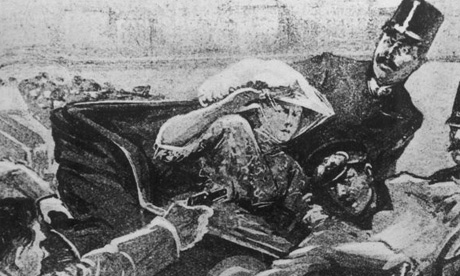



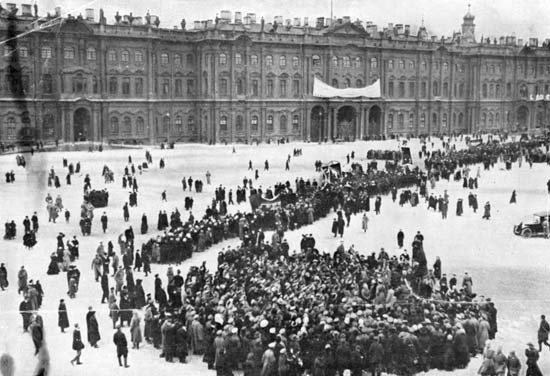

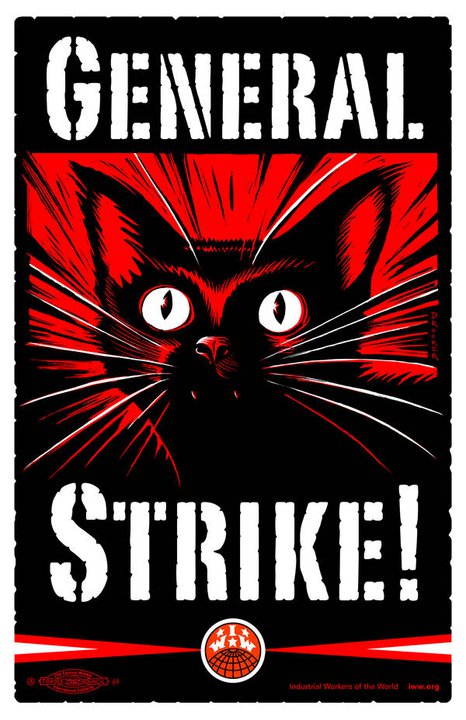
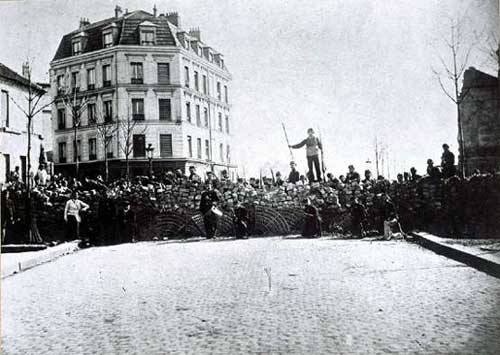
![CENTER]](http://[CENTER][url]http://oi51.tinypic.com/2nb505s.jpg[/url][/CENTER])
